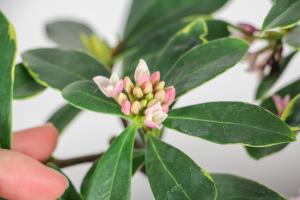Can I Plant Trees on Farmland in Maryland?
Farmers in Maryland have always been known to grow crops such as corn, wheat, and soybeans. However, with global warming becoming an increasingly pressing issue, more and more farmers are now interested in planting trees on their farmland to offset carbon emissions. This has led to many people wondering if it is legal to plant trees on farmland in Maryland.
Rules and Regulations
The answer to this question is not as straightforward as a simple yes or no. In Maryland, the government provides incentives for farmers who choose to plant trees as part of their conservation efforts. This is why the government has set up different programs that farmers can participate in to receive support for planting trees on farmland.
One such program is the Conservation Reserve Enhancement Program (CREP), which is a federal-state partnership that provides technical and financial assistance to farmers who are interested in improving water quality, reforestation, and wildlife habitat. Under this program, farmers will be reimbursed for planting trees on their farmland and keeping them for at least 10 years.
The Maryland Department of Natural Resources also has a program called the Buffer Incentive Program that provides financial assistance to farmers for planting trees around streams, creeks, and other areas near water sources. This program helps to prevent soil erosion and improve water quality, and farmers can receive up to $10,000 per acre for this effort.
Benefits of Planting Trees on Farmland
There are various benefits to planting trees on farmland, aside from preserving the environment. Trees help to improve air quality, regulate temperature, and provide habitat for wildlife, among other benefits. Additionally, planting trees can help to increase the overall value of farmland by improving the soil quality and creating a more aesthetically pleasing environment.
Another benefit is that farmers can earn money from planting trees. In addition to the incentives provided by the government, farmers can also earn money from the sale of timber, nuts, or fruits produced by the trees. This can provide an additional source of income for farmers, and also diversify their crops.
Conclusion
Planting trees on farmland in Maryland is not only legal but also encouraged by the government. By participating in the different programs available, farmers can receive financial and technical assistance to improve the environment and potentially earn money. Planting trees on farmland not only benefits the environment but also has potential economic benefits, making it a sound investment for farmers in Maryland.

 how many times do yo...
how many times do yo... how many planted tre...
how many planted tre... how many pine trees ...
how many pine trees ... how many pecan trees...
how many pecan trees... how many plants comp...
how many plants comp... how many plants can ...
how many plants can ... how many plants and ...
how many plants and ... how many pepper plan...
how many pepper plan...




























